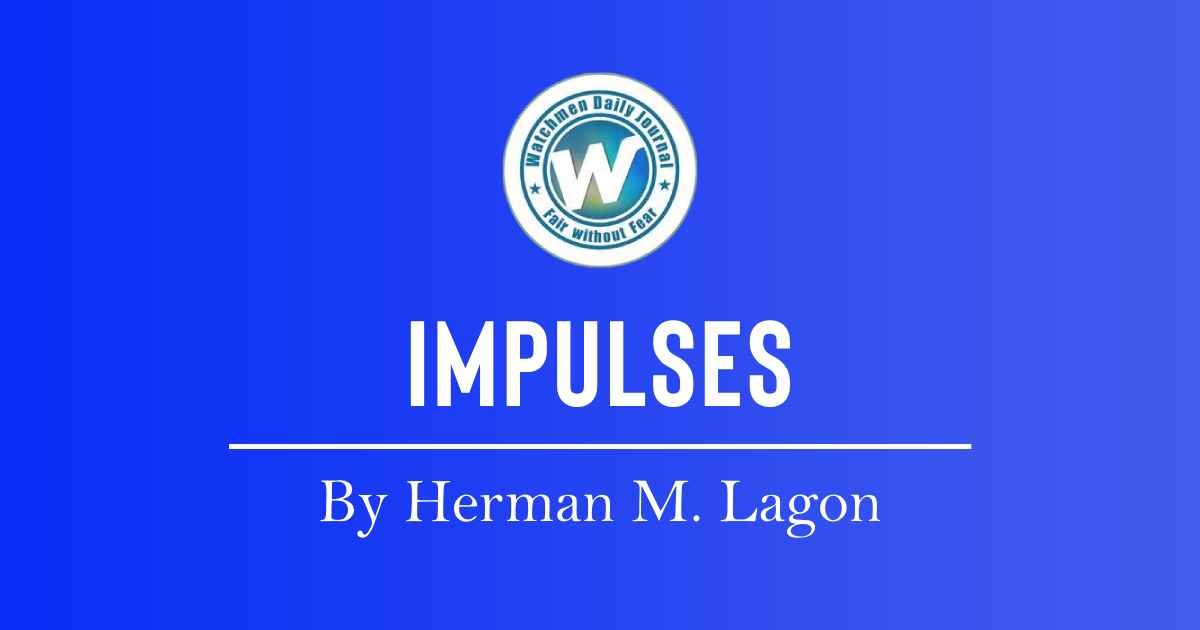 By Herman M. Lagon
By Herman M. Lagon
In a world where success often comes wrapped in medals and titles, we tend to assume we are somehow immune to frailty when things are going well. But if there is one truth that the humbler among us knows, no amount of success, intelligence or acclaim erases our faults. In fact, when we believe in our own hype, we start skimming over the essence of what keeps us grounded: humility. Staying driven yet humble is more than good advice — it keeps us in touch with our humanity. Despite being a slow learner, I am still learning humility, albeit painstakingly.
After reflecting on my journey, I have realized that humility goes beyond manners, protocols and social graces. This mindset reminds us that we are all constantly evolving. As a teacher, every mistake, prideful moment and success has taught me more about myself. I recognize many of my errors, faults, blunders, and hubris. I often think too highly of myself, forgetting that the hands lifting me can also lower me. Humility is a daily practice I am still working on.
Perhaps what makes humility so compelling is that it is deeply honest. People who walk around like they have got the world figured out tend to make others feel small. They give off an air of superiority that drains the room of energy. Researchers agree that arrogance is a significant barrier to collaboration and can breed resentment (Fehr et al., 2010). In contrast, the quiet, self-assuredness of humble people draws us in. They know they are not perfect and do not claim to be. They give others space to shine, conversely making them more admirable.
It is easy to recognize these humble giants in daily life. They are the ones who “stay after the speech,” so to speak. They hang around after events, listen without rushing, and never act like their time is too precious to share. Think about the mentors who respond to emails with genuine advice or the community leaders who remember the names of the people they serve. These are the individuals who, despite all their achievements, are relatable. When we see successful people embodying humility, it challenges us to redefine what greatness looks like — not as an ascent above others, but as a willingness to walk alongside them.
Humility, too, is closely tied to generosity. Those who are humble tend to be givers rather than takers. They understand that success is not theirs alone but a shared journey with the communities and people who have supported them. The late Filipino teacher and community leader Dr. Fe del Mundo said it best: “The heart that gives, gathers.” Those who give without expecting anything in return gather respect and a quiet strength that sustains them. Real humility makes us generous because we see giving as part of a larger cycle — something we owe to the world that has given us so much.
Interestingly, studies show that humble people are more likely to experience long-term happiness and fulfillment. This is not mere sentimentality; psychologists have found that humility correlates with greater emotional resilience and life satisfaction (Worthington, 2011). In practical terms, staying humble is also strategic. Arrogance tends to isolate, while humility builds bridges. This can mean the difference between valued and dismissed students in the classroom. Not surprisingly, teachers who see their students as equal partners in learning leave lasting impressions.
We must also remember our roots. The people and experiences that shaped us keep us grounded and remind us of our journey. Mentors, peers and family members who believed in me and challenged me to improve often come to mind. The wisdom we draw from our roots keeps us grounded and informs how we give back. I firmly believe that humility should open us to giving back because we understand the impact others have had on us. It is a continuous cycle that keeps us connected to our identity, heritage and origins.
In our culture, humility is both a virtue and a value. It is ingrained in how we treat each other, respect elders, offer help without boasting, and honor the idea of Bayanihan or communal unity. This cultural foundation of humility counterbalances ego and excess, reminding us that success is hollow if it does not serve a greater good. Whether in the classroom or the boardroom, humility bridges gaps, making spaces for collaboration and compassion. A deeply Filipino virtue, it transcends professional and personal boundaries.
I have learned that humility is a journey without a destination. Just when I think I understand, life humbles me again. Pride and humility are both in me. As a teacher, I have felt arrogance more times than I care to admit, especially when things go well. However, each stumble reminds me of my frailty, a whisper that no matter how high I climb, I am always one mistake away from humility.
In the end, humility is about using our accomplishments to help others. It reminds us to stay reachable even when our work takes us to dream places. I think true humility leaves a mark by being quiet confident, not demanding recognition. It shows our willingness to learn from both successes and failures. Humility makes us resilient, thoughtful, and most importantly real.
I think humility is the ultimate paradox: The more we embrace it, the more we realize we need to improve. Humility is a gentle, constant reminder to stay grounded and grateful and let our actions speak for us. As we pursue success, let us remember the age-old lesson of humility.
***
Doc H fondly describes himself as a ”student of and for life” who, like many others, aspires to a life-giving and why-driven world grounded in social justice and the pursuit of happiness. His views do not necessarily reflect those of the institutions he is employed or connected with./WDJ

